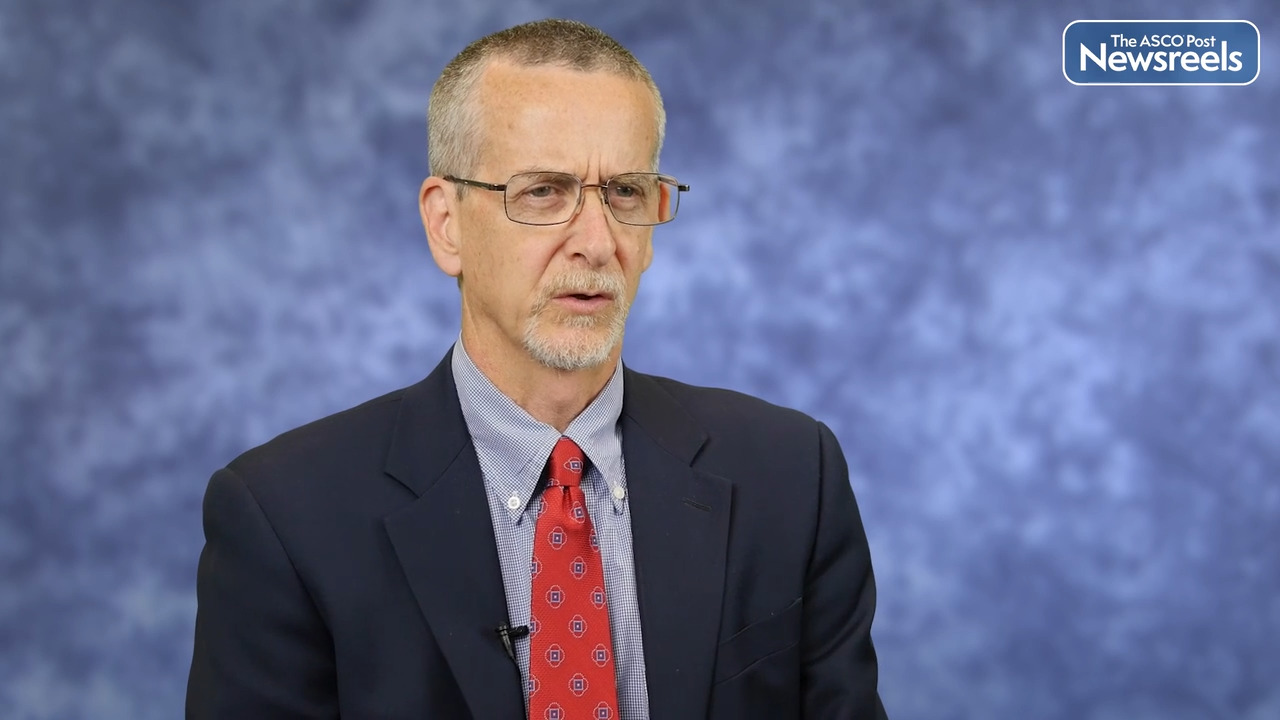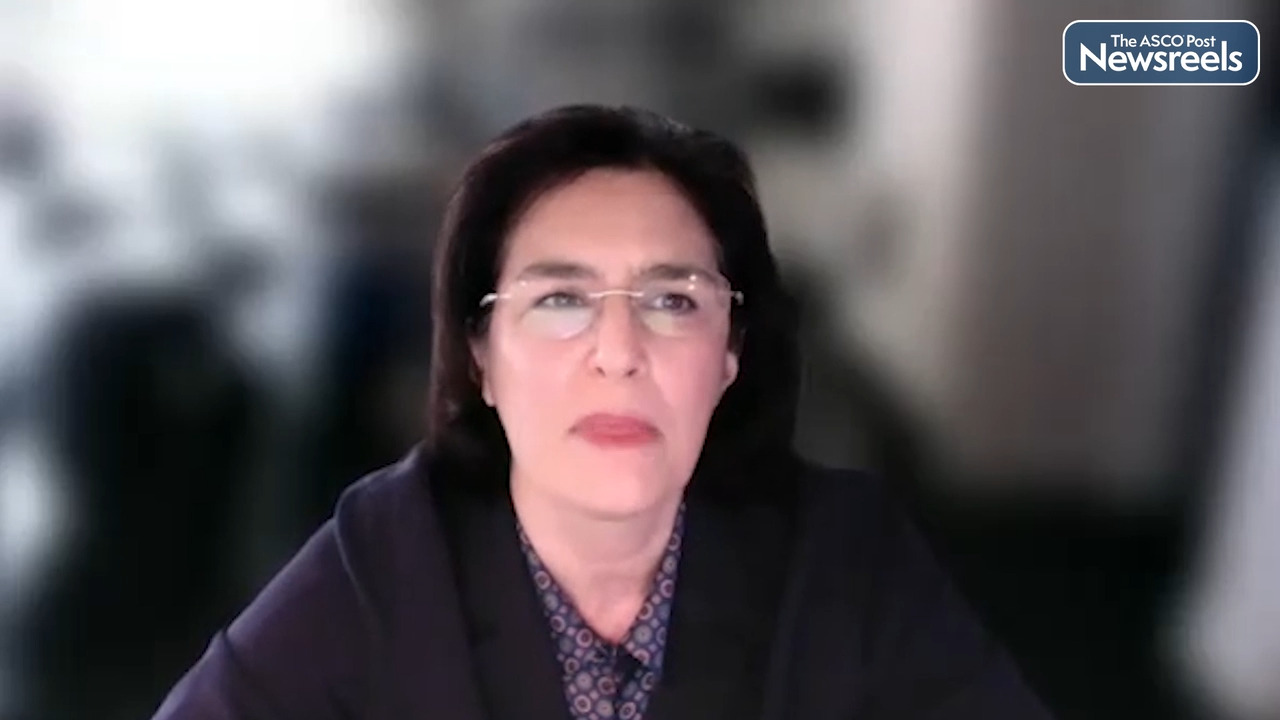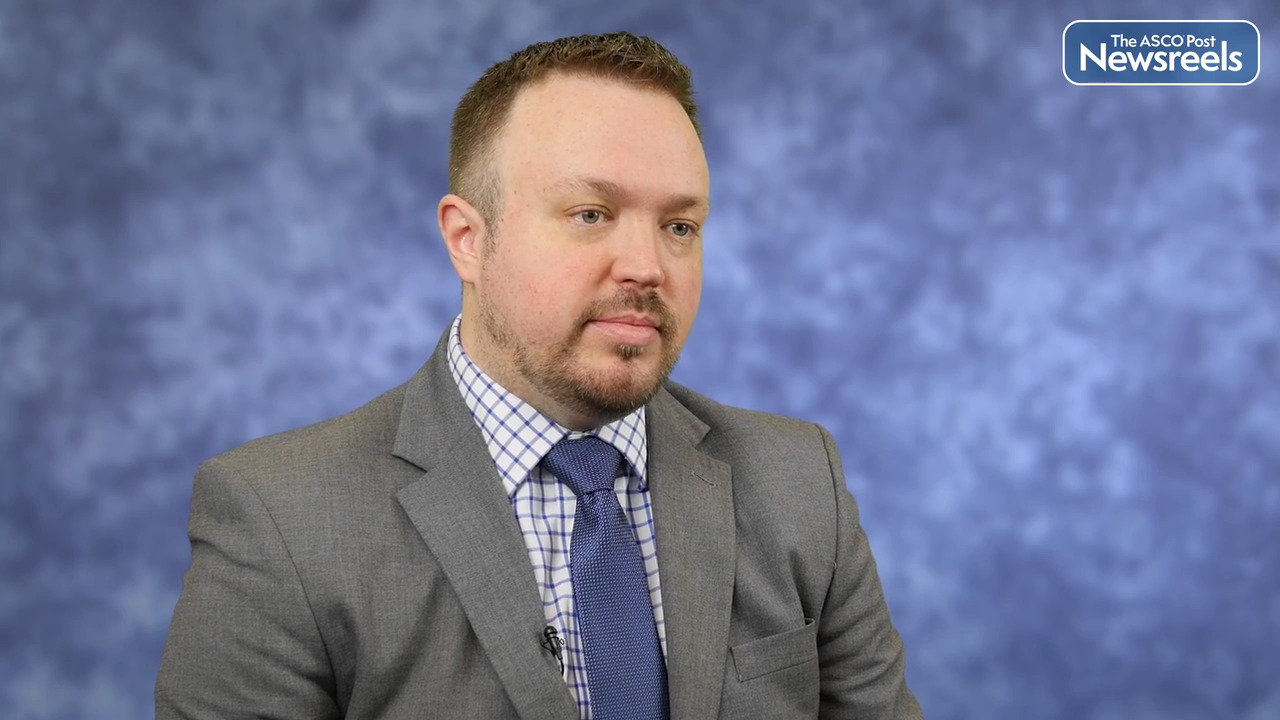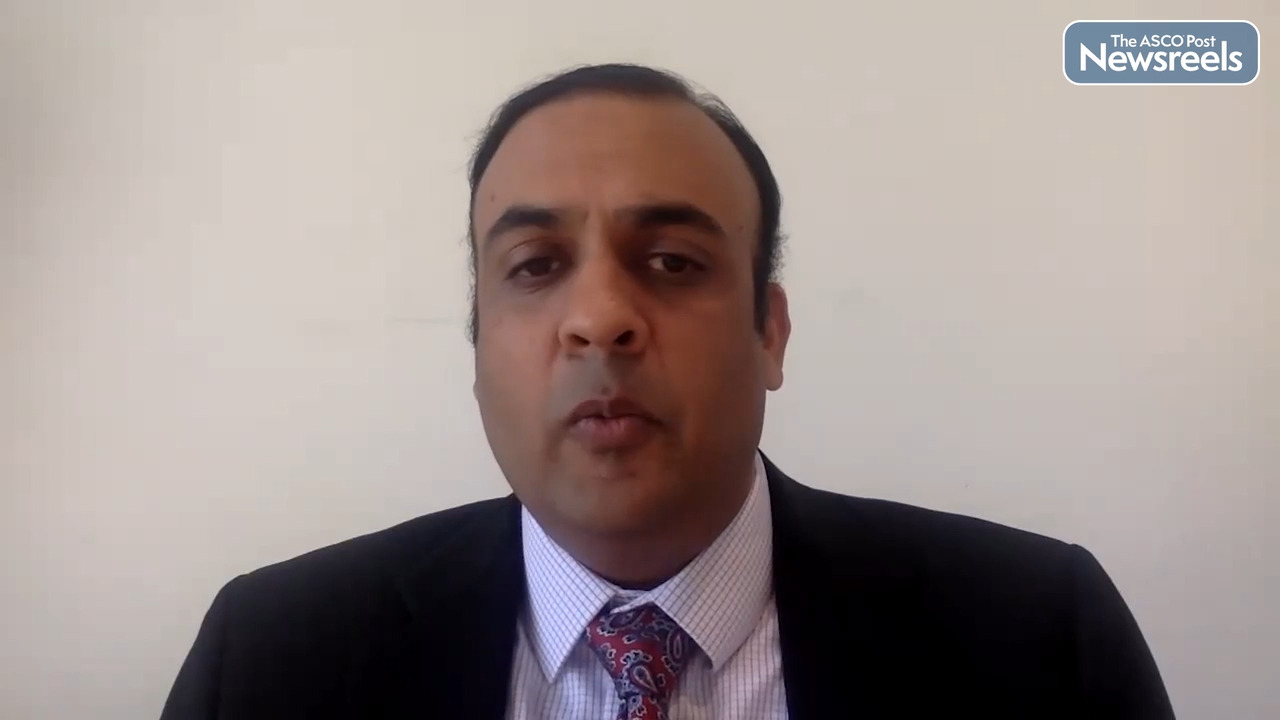Transcript
Disclaimer: This video transcript has not been proofread or edited and may contain errors.
Michael K. Gibson:
Esophageal cancer is the seventh most common cause of cancer worldwide, but also the sixth most common cause of death. There are two histologies, squamous cell cancer and adenocarcinoma. Squamous cell cancer predominates making up about 90% of all cases of cancer of the esophagus, and most of these cases are outside of America. When the patient's cancer becomes recurrent or metastatic, we treat with palliative intent, so time and quality. Historically, we've picked cytotoxic chemo from one of three categories, taxanes, platinums and fluoropyrimidines. And with those combinations, even now, the median overall survival only approaches 10 months. So there's been a great need for advances in treatment of this squamous cell subtype of esophageal cancer. And unlike adenocarcinoma, which has four predictive biomarkers, squamous cell cancer of the esophagus has none. Fortunately, with the advent of immunotherapy, we've made a fair amount of progress. And there are three randomized clinical trials that have been presented over the past year or two, which demonstrate the power of immunotherapy for squamous cell cancer to the esophagus.
The first one, KEYNOTE 590, has a baseline cytotoxic regimen of cisplatin and 5-FU. The study, which included 70% squamous cell cancers, added pembrolizumab to that base combination for overall survival. The hazard ratio was approximately 0.7, and it did not cross one. So the confidence interval as well as the hazard ratio made this study a statistically significant and positive study. The second study CheckMate 648, similar setting, first line, recurrent metastatic, but it had three arms instead of two. The baseline arm, again was cisplatin, 5-FU, then the comparator arms were the same, plus or minus nivolumab. And then perhaps a more novel and useful arm, which was a combination of nivolumab and ipilimumab without cytotoxic chemotherapy. And again, the experimental arms were successful and the hazard ratio was approximately 0.7. The third trial done primarily as a group in China, is called ESCORT-1st.
Again, had a baseline chemotherapy, but this time it was a taxane, plus a platinum, plus or minus camrelizumab, which was another check point inhibitor. And perhaps not surprising, this study was also positive for the addition of immunotherapy to cytotoxic chemo, hazard ratio, again, hovers around 0.7. I should note that none of these trials had marker selection, and the toxicity of each of them was as expected when you add immunotherapy to chemotherapy. So this represents a paradigm shift in the treatment of frontline recurrent metastatic squamous cell cancer of the esophagus. The median overall survival, has approached 12 months. And to reiterate, the hazard ratios were in the mid to low 0.7. The future will involve using this new paradigm, chemo plus immunotherapy or dual immunotherapy, plus additional approaches to improve the median overall survival to 12 months and beyond.





